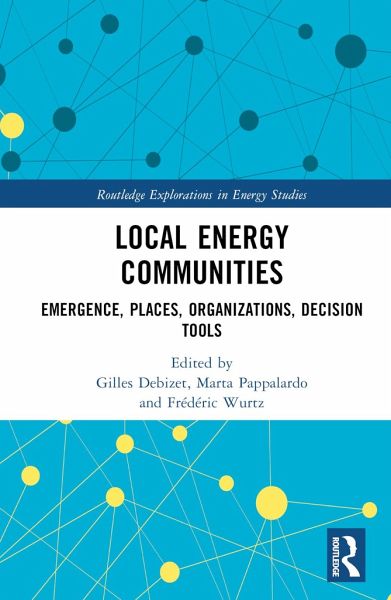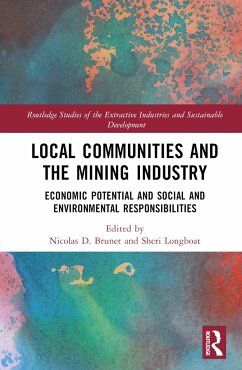
Local Energy Communities
Emergence, Places, Organizations, Decision Tools
Herausgeber: Debizet, Gilles; Wurtz, Frédéric; Pappalardo, Marta
Versandkostenfrei!
Versandfertig in 1-2 Wochen
168,99 €
inkl. MwSt.

PAYBACK Punkte
84 °P sammeln!
This book draws on social science analysis to understand the ongoing dynamics within and surrounding local energy communities in reliably electrified countries: Belgium, Canada, Colombia, France, Germany, India, the Netherlands, Spain, Switzerland and the United Kingdom. It offers a comprehensive overview of recent results and thus outlines a diversity of drivers and levers for scaling up energy communities or, at least, local energy sharing. Analysing the main types of energy communities such as collective self-consumption, citizen cooperatives and peer-to-peer digital platforms, the book doe...
This book draws on social science analysis to understand the ongoing dynamics within and surrounding local energy communities in reliably electrified countries: Belgium, Canada, Colombia, France, Germany, India, the Netherlands, Spain, Switzerland and the United Kingdom. It offers a comprehensive overview of recent results and thus outlines a diversity of drivers and levers for scaling up energy communities or, at least, local energy sharing. Analysing the main types of energy communities such as collective self-consumption, citizen cooperatives and peer-to-peer digital platforms, the book does not only raise new questions for social scientists, but also offers a comprehensive overview for all those contributing to the circular economy and the decentralization of energy production in inhabited areas where energy consumption is concentrated. This book provides input for the ongoing debates in many European countries implementing the national law on the European directives for energy communities. Furthermore, without evading the antagonism between cooperative and market approaches, or the contradictions between different issues, the book outlines the innovative decision-making tools that can facilitate the development of local energy production and sharing systems. As well as being of interest to postgraduates and researchers in the field of energy studies, this book will be vital to energy professionals looking to support local energy communities' decision-making and design, who wish to consider sociological, organizational and territorial dimensions.














